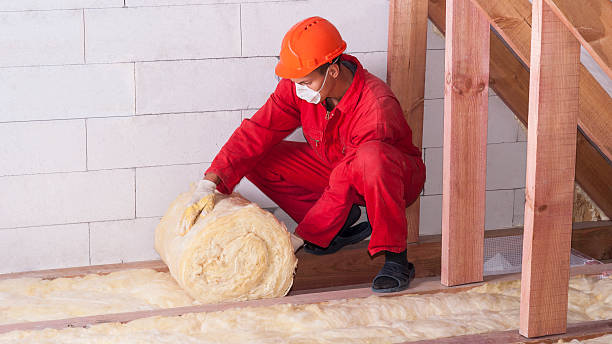2025 Price: Is Rockwool Cheaper than Fiberglass?
Discover the 2025 price comparison between Rockwool and fiberglass insulation with FUNAS. Dive into our in-depth analysis to find out: Is Rockwool cheaper than fiberglass? Explore cost-effectiveness, thermal efficiency, and long-term benefits to make an informed decision for your insulation needs. Stay ahead in energy efficiency and savings with our latest insights.

When comparing the prices of rockwool and fiberglass insulation, several factors come into play, including material costs, installation fees, and long-term energy savings. Here’s a breakdown of their price differences in 2025:
Material Cost
- Fiberglass Insulation: Generally, fiberglass is less expensive than Rockwool (also known as mineral wool) insulation. It is widely available and typically costs between $0.40 and $1.00 per square foot, depending on the type (batts, rolls, or loose-fill) and brand.
- Rockwool Insulation: Rockwool tends to be pricier, ranging from $1.00 to $2.00 per square foot. The higher cost is due to the manufacturing process and the materials involved, such as volcanic rock and basalt.
Performance and Efficiency:
While rockwool is more expensive, it is often considered a better performer in terms of fire resistance, soundproofing, and thermal insulation. It has superior durability and is water-resistant, which may justify the higher price in certain applications.
Installation Costs
- Fiberglass: fiberglass insulation is lighter and easier to handle, so installation costs tend to be lower.
- Rockwool: Rockwool is denser and heavier, which can result in slightly higher installation costs, as more labor may be needed to handle and install it.
Long-Term Savings
- Although Rockwool costs more initially, it offers better energy efficiency in terms of thermal and acoustic performance. This can lead to savings on heating and cooling bills over time, potentially offsetting the higher upfront costs.
- Fiberglass, being less dense, may not offer the same level of insulation as Rockwool in certain climates or applications, potentially leading to higher long-term energy costs.
Conclusion
Fiberglass is typically cheaper upfront, but rockwool might offer better value for specific needs due to its higher performance in terms of fire resistance, soundproofing, and durability. The choice between the two depends on your specific insulation needs, local climate, and budget.
How much does acousticfoam reduce sound? | FUNAS Guide
What is a good R-value for thermal insulation? | FUNAS Guide

Ultimate Guide: What is Insulating a House?
What is the best foam foracoustic panels? | FUNAS Guide
Is thermal insulation worth it? | FUNAS Guide
FAQ
Can your insulation products be customized?
Yes, we offer customized solutions for insulation material wholesale to meet the specifications of your project, including custom specifications, sizes, foils and adhesives, colors, etc.
How do I choose the right insulation for my project?
Our team can help you choose the best material for heat insulation based on your specific needs, such as thermal resistance, acoustic properties, and environmental conditions.
service
What types of rubber foam insulation products do you offer?
We offer a wide range of rubber foam insulation products, including custom shapes and sizes, thermal and acoustic insulation solutions, and options with specialized coatings such as flame retardancy and water resistance. Our products are suitable for applications in HVAC, automotive, construction, and more.
How does your technical support work?
Our technical support team is available to guide you through every stage of your project—from product selection and design to installation. We provide expert consultation to ensure that you get the best insulation solution for your needs and can assist with troubleshooting if needed.
Can I request custom dimensions or properties for my insulation needs?
Yes, we specialize in custom solutions. Whether you need specific dimensions, thicknesses, densities, or additional coatings, we can work with you to manufacture insulation products tailored to your exact requirements of good materials for heat insulation.
You might also like



This product has passed the national GB33372-2020 standard and GB18583-2008 standard. (The product is a yellow liquid.)
Anggu foam phenolic glue is a kind of glue with corrosion resistance, low odor, high strength and excellent brushing property. Can be sprayed for construction with fast surface drying speed, long bonding time, no chalking and convenient operation.

This product has passed the EU REACH non-toxic standard, ROHS non-toxic standard. (The product is black glue.)
Anggu 820glue is a low-odor, high-strength quick-drying glue; Fast drying speed, long bonding time, no powder, non-toxic.
Discover the future of energy efficiency with FUNAS's "Top Thermal Insulation Materials List for 2025." Our expertly curated list highlights innovative solutions perfect for your construction and renovation needs. Stay ahead of the curve with cutting-edge insulation technology designed for optimal thermal performance and sustainability. Trust FUNAS for advancements that redefine comfort and efficiency in every project.
Leave a message
Have any questions or concerns about our products? Please leave us a message here and our team will get back to you promptly.
Your queries, ideas, and collaboration opportunities are just a click away. Let’s start a conversation.


















































